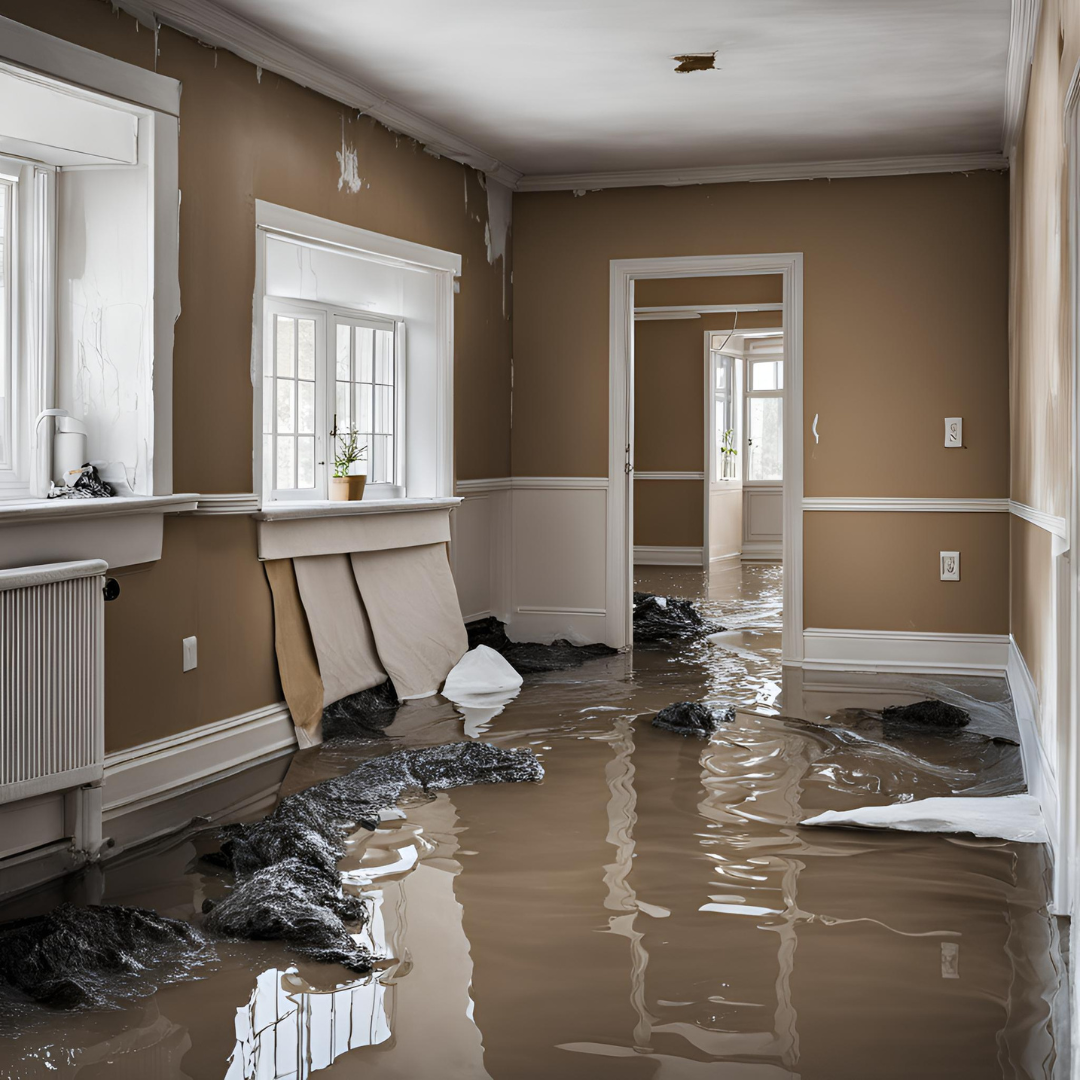
Farm Insurance ● Aug 12, 2025
Safe & Sound Insurance Blog
Home Insurance, Condo Insurance, Tenant Insurance, Seasonal Home Insurance ● Jul 24, 2024

This guide will help you protect your home and belongings with the best house insurance coverage, with the help of Knight Archer.
With wild weather and unexpected events, it's essential to have a good insurance policy to protect your valued possessions. This guide will help homeowners and renters make informed decisions about home insurance and feel at ease.
Read on to learn about different types of insurance policies, determining the coverage you need, and more. We'll also go over what factors to consider when choosing a policy, and how to make a claim if the need arises. Of course, our friendly and helpful staff are just a click, phone call, or visit away for any other questions you might have.
You should not leave the safety and security of your home to chance. Let us guide you towards great protection for your most important investment. Get ready to take control and secure your home with the right insurance policy.
Owning a home is one of the most significant investments you'll make in your lifetime. Your home isn't just a place to live, but a reflection of your hard work, savings, and dreams. Protecting this investment is crucial, and that's where home insurance comes into play.
Home insurance protects your property, belongings, and finances from unexpected events. That could be things like natural disasters, fires, theft, or personal liability claims. If you're renting, tenant insurance is also important to protect your home's contents.
Picture a situation where a storm damages your home, leading to expensive repairs and the loss of cherished items. Without the right insurance coverage, you'd be responsible for covering all these expenses yourself. That could mean risking your financial stability. Home insurance offers a safety net, ensuring that you do not have to shoulder the burden alone.
Also, home insurance is usually a requirement for homeowners who have a mortgage. Lenders typically require borrowers to maintain a certain level of coverage to protect their investment in the property.
With home insurance, there are several different types of policies to consider. The most common are:
This is the most comprehensive form of home insurance. It covers damage to your home, belongings, and liability for injuries or damage caused by you or family members. Homeowners insurance typically includes coverage for damages caused by fires, storms, theft, and other perils. Sometimes it can also cover additional living expenses if your home is too damaged to live in.
If you're a renter, tenant insurance (also called renters insurance) provides protection for your personal belongings. In case someone gets injured on your rental property, it also provides liability coverage. Tenant insurance does not cover the structure of the building itself, as the landlord will have coverage for that. Getting a tenant insurance quote is similar to getting a home insurance quote.
For those living in a condo, condo insurance covers the interior of your unit. This includes your personal belongings and any improvements you've made to the space. It also provides liability coverage and may include additional protection for common areas within the condo complex.
Consider this policy if you own a property that is not occupied year-round. This might be a vacation home, cabin, or rental property. Dwelling fire insurance covers the structure of the building and may include limited personal property and liability coverage.
Understanding the differences between these policy types will help you decide on the right coverage for your specific needs. Consider each option to help you make an informed decision to protect your home and assets. Our staff are here to help you make the best choice for your situation.
Here are some important factors to look at to make sure you're getting the right coverage at the right price. Let's look at some of the key elements to keep in mind:
The coverage limits of your policy decide the maximum amount the insurance company will pay for a covered claim. Choose limits that adequately protect the value of your home and personal belongings. Under-insuring your property could leave you responsible for significant expenses if you have a loss. Examine at what is and isn't a covered loss in your policy.
The deductible is the amount you'll need to pay before the insurance company covers the remaining costs. Choosing a higher deductible can lower your monthly payments, but you'll need to cover more of the initial costs if you file a claim.
Home insurance policies often have exclusions, which are specific perils or situations that are not covered. Understanding these will help you identify gaps in your coverage and where you might need to purchase additional insurance.
You'll need to decide between replacement cost or actual cash value for personal property coverage. Replacement cost coverage will pay to replace your belongings with new items. Actual cash value coverage will only reimburse you for the depreciated value of your items.
Liability coverage protects you if someone gets injured on your property. It can also protect you if you are legally responsible for damaging someone else's property. If someone sues you, you need adequate liability coverage to safeguard yourself.
Many insurance providers offer a variety of discounts. You can save money by installing security systems, staying loyal, or installing a backwater valve. Sometimes even things like being located near a fire station can add a discount. Exploring these cost-saving opportunities can help you find the most affordable coverage for your needs.
By keeping these factors in mind, you can tailor your home insurance policy to give you the protection you need.
You need to accurately assess the value of your home and your coverage needs before getting an insurance policy. This will help you figure out the right limits and make sure that your property and belongings are protected.
To start, consider the replacement cost of your home. This is the amount it would take to rebuild your home from the ground up. This includes all the costs such as materials, labor, and any necessary permits.
The replacement value may be different from the market value or purchase price of your home. That's because this cost considers things like the size, age, and construction materials used.
Next, evaluate the value of your personal belongings. This includes furniture, electronics, clothing, and other valuables if they would need replacement. You can create a home inventory to help you identify and estimate the worth of your possessions. This information will be crucial in determining the appropriate coverage limits for your personal property.
Consider any unique features or upgrades to your home, like a finished basement, swimming pool, or high-end appliances. To be fully protected, these might need additional coverage.
Also assess your liability risks. Factors like property size, having a swimming pool or trampoline, and visitors impact home insurance rates. Good liability coverage can protect you if a lawsuit happens, or an accident on your property.
You can work with your insurance provider to create a policy that protects your home, belongings, and liability risks. This policy is based on the value of these items. You'll have peace of mind knowing that your most valuable assets are protected against unexpected events.
Standard home insurance policies provide a solid foundation of protection. But, there are additional coverage options available that can further strengthen your overall protection. Depending on your specific needs and the risks associated with your property, you may want to consider the following:
Flood damage is not usually covered by home insurance policies. If your home is in a flood-prone area or you worry about flooding, adding flood insurance is a smart choice.
Certain regions are more prone to seismic activity, and standard home insurance does not cover damage caused by earthquakes. Earthquake insurance can provide the necessary protection for your home and belongings if there is a tremor.
Sewer backups can cause significant damage to your home and can be expensive to repair. Sewer backup coverage can help protect you from the financial burden of cleanup and restoration.
If you have valuable items like jewelry, fine art, or collectibles, standard home insurance may not fully cover them. Additional coverage can make sure the contents of your home are properly protected.
In today's digital age, identity theft is a growing concern. Some home insurance providers offer identity theft coverage. This can help you recover from the financial impact of this type of crime.
An umbrella insurance policy is an extra layer of protection. If you have a lot of money, travel a lot, or sit on a board of directors - this insurance gives more protection than usual.
By looking at your specific needs and risks, you can work with us to customize your home insurance policy. This ensures you have the comprehensive coverage you need to protect your home and assets fully.
When you need to file a home insurance claim, it's important to follow the proper steps to ensure a smooth and successful process. Of course, Knight Archer will be there to help with every step along the way. Here's what you should do:
Carefully inspect your property and document any damage with photographs or video. This documentation will be crucial in supporting your claim.
Take immediate steps to prevent further damage, such as covering broken windows, repairing leaks, or removing debris. Keep all receipts for any emergency repairs, as these may be reimbursable under your policy.
Notify your insurance broker as soon as possible after the incident, they will help you file your claim and get the claims process started. Be prepared to give detailed information about what happened, the damage, and any steps you've already taken.
This may involve submitting a written statement, providing supporting documentation, and scheduling an inspection of the damage. When the claims adjuster arrives, be prepared to walk them through the damage. They may also need any additional information you have. Avoid making any unauthorized repairs or alterations to the property before the adjuster's inspection.
Once the claims process is complete, carefully review the settlement offer. Make sure it accurately reflects the cost of repairs or replacement. If you have any concerns, don't hesitate to discuss them with your insurance provider.
Use the settlement funds to repair the damage to your home or replace any lost or damaged items. Be sure to keep all receipts and documentation related to the repairs.
If you have any outstanding issues or concerns, follow up with your insurance provider promptly.
Follow these steps to make sure your claim is processed quickly, and you get the compensation you deserve from your policy. This will also ensure that your claim is processed quickly.
Home insurance is a complex topic, and there are several common misconceptions that can lead to gaps in coverage. Let's address some of the most prevalent myths:
Even if your home is fully paid off, home insurance is essential to protect your investment and belongings. Unexpected events, such as natural disasters or theft, can cause significant financial damage without proper coverage.
This is not always the case. Homeowners’ association policies typically only cover common areas and the exterior of the building. The landlord's insurance protects the building itself, not your personal belongings.
This is usually not true. Flood damage is often not included in standard home insurance policies. You can add this extra coverage onto your existing home insurance.
Home insurance can provide coverage for the replacement cost of your home, but this may not match the actual cost of rebuilding. Reviewing your policy limits ensures they accurately reflect the current replacement value of your property.
Tell your insurance company about significant changes to your home, like adding on, renovating, or putting in expensive things. Failure to do so could result in inadequate coverage if you have a claim.
Most home insurance policies have limits on personal property coverage. This may not be enough to replace all your possessions if you have a loss. Review your policy and consider additional coverage for high-value items.
By understanding these common misconceptions, you can ensure that your home insurance policy provides the comprehensive protection you need. This will give you peace of mind and financial security in the face of unexpected events. The staff at Knight Archer are happy to discuss any policy or situation you’re looking at. We can help make sure that you have full coverage.
Home insurance is essential for protecting your property and belongings, but home insurance premiums need to be affordable for you. Her are some discounts you may be able take advantage of to save money on your home insurance coverage.
Choosing a higher deductible can lower your monthly premiums. Make sure that you have the financial means to cover the higher out-of-pocket costs if you have a claim.
Insurance companies often offer discounts for homeowners who install security systems, fire alarms, or other safety devices. That's because these can help prevent or mitigate potential losses.
Your credit score can have a direct impact on your home insurance rates. Insurers view those with higher credit scores as lower-risk customers. Maintaining a good credit history can help you secure more favorable rates.
Many insurance providers offer discounts to long-term customers who have maintained their policies for several years. These loyalty discounts can create savings over time.
While it's generally not recommended to have high deductibles, you may be able to save money. You can choose to have higher deductibles on specific perils that are less likely to occur in your area.
Explore these cost-saving strategies and take advantage of available discounts. That way you can ensure that you're getting the best value for your home insurance coverage without sacrificing protection.
The home insurance industry is always adapting to new trends and technological advancements. Understanding these emerging developments can help you stay informed and make better decisions about your home insurance coverage. Feel free to ask us as well if you have any questions about new technologies which may impact your coverage.
The rise of smart home technology is transforming the home insurance landscape. Things like connected security systems, leak detectors, and home automation devices, can impact your insurance. Insurance providers are increasingly offering discounts or specialized policies that leverage these technologies to help prevent and mitigate potential losses.
Insurance companies are increasingly relying on predictive analytics and machine learning to better assess risk and personalize coverage. By analyzing vast amounts of data, insurers can identify emerging threats, tailor policies to individual homeowners, and proactively address potential issues before they occur.
Some home insurance providers are experimenting with usage-based policies. In this case, we choose premiums based on activity in the home, rather than using a one-size-fits-all approach. This can provide more personalized coverage and potential cost savings for homeowners who engage in risk-mitigating behaviors.
As climate change creates more extreme weather trends, new insurance gaps and rising costs are beginning to impact homeowners. More and worse weather events can increase costs across entire regions. Renovations or new technologies that help protect your home from weather may reduce costs now or in the future.
Recent Posts

Farm Insurance ● Aug 12, 2025


Home Insurance, Seasonal Home Insurance ● Jan 23, 2025